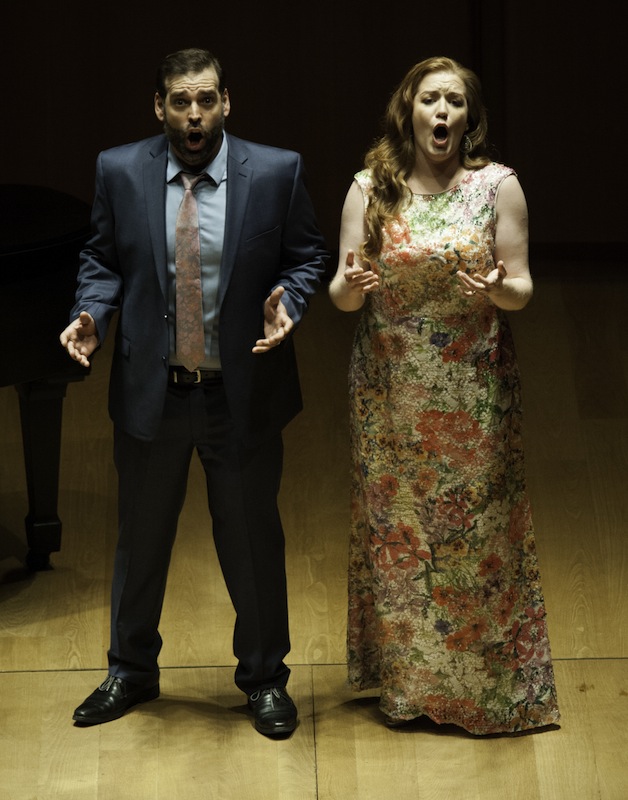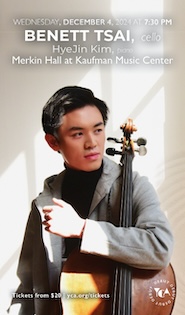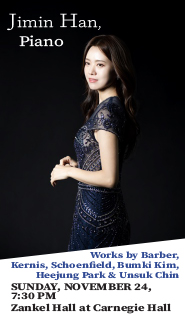Cano proves the more able at London Foundation finale

Dmitri Pittas and Jennifer Johnson Cano performed at the George London Foundation concert Sunday at Gilder Lehrman Hall. Photo: Shawn Ehlers
The concert season is drawing to a close, and on Sunday the George London Foundation wrapped up its 2015–16 recital season with a program at Gilder Lehrman Hall. By presenting London Award recipients in recital, this series offers a chance to see singers both established and aspiring in one of New York’s most intimate concert venues.
Sunday’s installment featured a pair of London laureates who both have respectable careers already. And yet these concerts have rarely felt so uneven. Tenor Dmitri Pittas, whose career finds him onstage at the Met and in leading roles at regional houses, sounded especially tired, his leathery tone straining against most of the material he attempted.
In Four Songs by Henri Duparc his French diction sounded encumbered, and so did his voice, as many pitches did not fully register and he labored to produce volume. It was much the same throughout his selections, from three songs by Brahms to Bellini’s “La ricordanza.” At his best he was able to find some security of tone, though the tradeoff was a lack of real phrasing, as most of his songs were roughly blasted through. Pittas was accompanied by his wife, Leah Edwards, who played beautifully, bringing luminous sound out of her rolling chords.
Sunday’s recital truly belonged to mezzo-soprano Jennifer Johnson Cano, whose amber-tinged voice and deep artistry enlivened every item she sang. Beginning with five selections from Wolf’s Mörike Lieder, she immediately showed off a firm, almost forceful vocal energy and strong dramatic concept in her fervid account of “Der Feuerreiter.” Cano possesses a heavy, viscous voice and could not always easily mould it around a tight phrase, so that she was somewhat less effective in more tender moments; but just to hear the fullness of the instrument on a sustained note was in itself gorgeous.
She too was accompanied by her spouse, Christopher Cano, who initially sounded overly aggressive at the keyboard, overwhelming the music and making the keys click even in his softer playing. As the recital went along, however, his playing grew more open, until he found a rolling, rippling touch in Three Tennyson Songs by Jonathan Dove.
These were by far the highlight of Sunday’s performance, a fascinating and melancholy set in which Cano displayed crisp English diction that helped her combine specificity of dramatic intention with specificity of phrasing. The vacant, eerie writing of “Dark House” chills the blood, but there was a sorrowful warmth in her singing that made the music feel intensely personal rather than hauntingly distant. In “The Sailor-Boy,” a brisk narrative with more than a whiff of salt air, she sang with an altogether noble bearing, and brought shining heroism to the galloping music.
“Tonight” from Bernstein’s West Side Story made a pleasing enough closing duet, though neither singer seemed truly at home. Their full-throated singing came dangerously close to smothering the writing.


